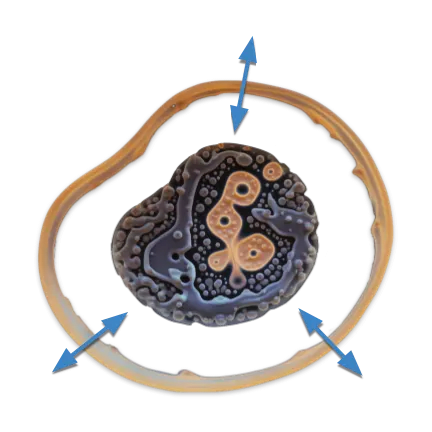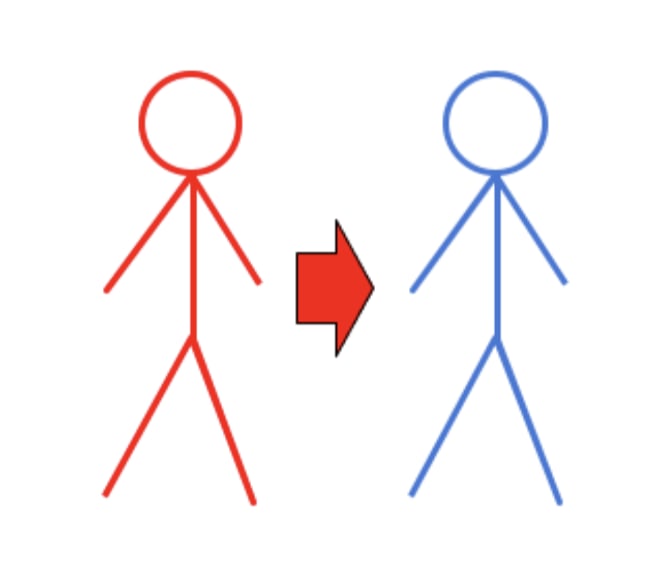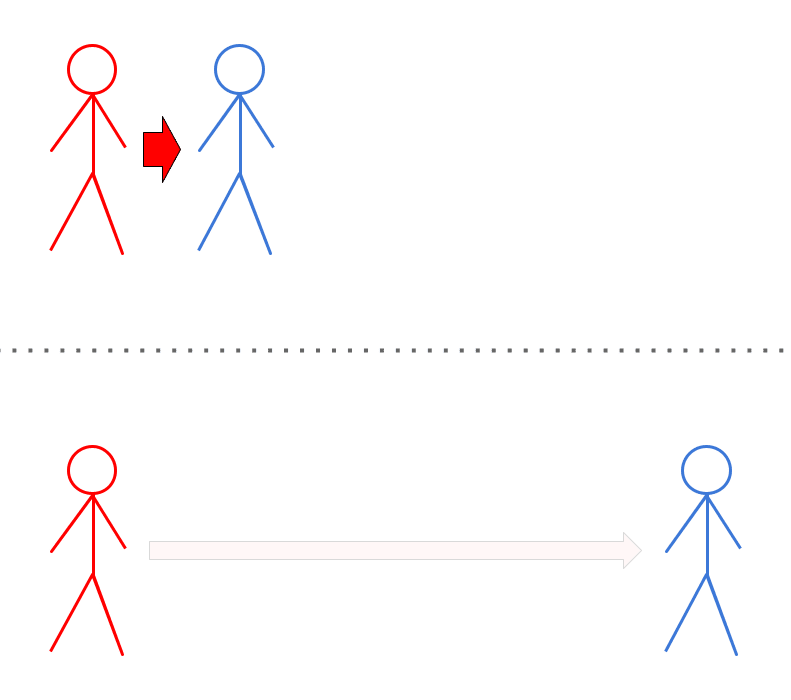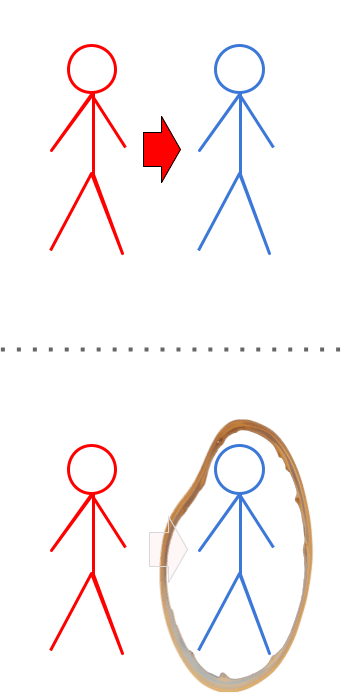What is autonomy? Why boundaries are necessary.
post by Chipmonk · 2024-10-21T17:56:33.722Z · LW · GW · 1 commentsThis is a link post for https://chrislakin.blog/p/what-is-autonomy
Contents
For example, imagine a bacterium. Boundaries can grant autonomy. Boundaries can provide safety without physical distance. Boundaries can provide “causal distance”. Boundaries can allow cooperation. To preserve autonomy, preserve boundaries. Boundaries can prevent your insides from being controlled by your outsides. Further reading None 1 comment
Here I define autonomy as not having your insides controlled by your outsides.
Complete autonomy is impossible, of course. This is the lim→∞.
For example, imagine a bacterium.

It has insides: its guts.
It has outsides: its environment.
And in between, it has a membrane.
The membrane is the thing that attempts to control what comes in and what goes out. For example, pores can guide nutrients in and waste out.

The membrane is what maintains the bacterium’s separation from the environment.
Boundaries can grant autonomy.
For a bacterium to stay autonomous, its membrane must not dissolve.
In general, for an agent to stay autonomous, its boundaries must not dissolve.
(A bacterium is just one kind of agent, and “boundaries” are just another term for [LW · GW] “membrane”.)
Suitable boundaries grant autonomy.
Boundaries can provide safety without physical distance.
Let’s say an agent (blue) is endangered by a threat (red).

What could make blue safe?
One way is physical distance:

Another way is suitable boundaries:

Boundaries can provide “causal distance”.
In this way, suitable boundaries provide causal distance without physical distance.
For details, see Agent membranes and causal distance [? · GW].
Boundaries can allow cooperation.
When agents can rely on boundaries for safety (as opposed to relying on physical distance), they can interact more closely with each other.
And when agents interact more closely, they can cooperate more!
For details, see «Boundaries», Part 1: a key missing concept from utility theory [AF · GW].
To preserve autonomy, preserve boundaries.
Boundaries can prevent your insides from being controlled by your outsides.
Further reading
- How this relates to multi-scale alignment
- All of my posts about boundaries/membranes [? · GW]
- Formalizing «Boundaries» with Markov blankets [LW · GW]
- For discussion about emotional boundaries, see here
Thanks to Stag Lynn for help editing. Thanks to Alex Zhu, Anna Salamon, CFAR, Blake Borgeson, and many more for research support.
1 comments
Comments sorted by top scores.
comment by StartAtTheEnd · 2024-10-22T16:58:08.232Z · LW(p) · GW(p)
I thought this was quite obvious. It's why skin exists, and why internal bleeding is bad, and it's also why borders are a good idea. That last statement will probably make a lot of people angry with me, but that's because a moral ideal clashes with reality. I'm personally on the side of reality, since I know the consequences of opposing it.
There's a social hierarchy which looks a bit like the following:
Self > Family > Friends > Community > Country > Nation > World
And these layers of separation protect the inside against negative change or entropy or whatever. This website also has its own border [LW · GW]which I consider a good thing (as much as society wants to convince me that gatekeeping is sin).
What I hope society will realize soon is that dissolving these boundaries can have terrible consequences. I do include top-down moderation in that (as inherenting rules from upper layers interferes with the agency of lower layers). For instance, if this website has to censor certain information because an authority 2 or 3 levels further up in the hierarchy demands it, then this website will lose some of its agency and thus its individuality (uniqueness/difference). I consider it a danger when structures impose moral criteria on entities further down the hierarchy. "Thought crimes" are one example, but another is when Mojang says "You cannot allow swearing on your Minecraft realm server" or when Google says "Your website has offensive content, we need to delist it", or when the world tells Japan "Strong borders are immoral".
Now, you could make a case for the upper layers rejecting something inside them for a good reason (like the body expelling harmful things). For instance, society might tell parents "You can generally parent how you want, but violence against children is not allowed". But in this instance, we could simply say "Because they would be compromising the agency of children by harming them".
Interference seems to be harmful in general though. By which I mean this seems like an axiomatic truth. The best teacher tries to aid the growth of students, but they do not try to control the direction of growth. Being controlling in relationships is also harmful. I've heard this described as "Don't mess with other peoples destiny". There's also daoist ideals which says not to interfere. And what's the best advice for people with social anxiety? "Just be yourself". In short, people screw up when they try to control themselves too much rather than letting go and letting things flow naturally. it's like everything in life evolves in a good direction by itself as long as you don't mess with it. Even some meditation techniques can be described as "Shut up and just listen/observe". Tyrannies impose excess control. Communism might have failed because of similar issues with control vs letting people (or complex systems) organize themselves.
TL;DR: Interference might be, in a mathematical sense, harmful, because it prevents... Something akin to self-organization/self-assembly. (Or perhaps because "inheriting" restictions from every upper layer cuts off too many possibilities for the lower layers. Like when the educational system fails to foster each students individuality because it only fosters what students have in common. (∪ vs ∩)). And somehow, borders (agency) seems to help against this problem.